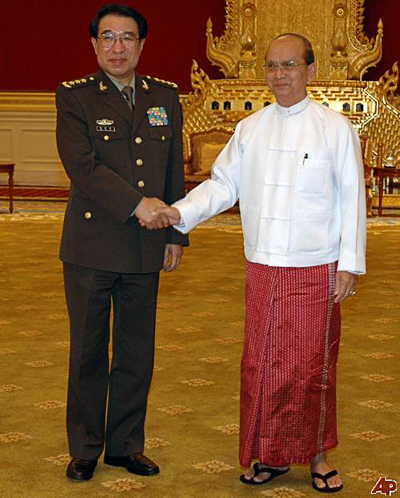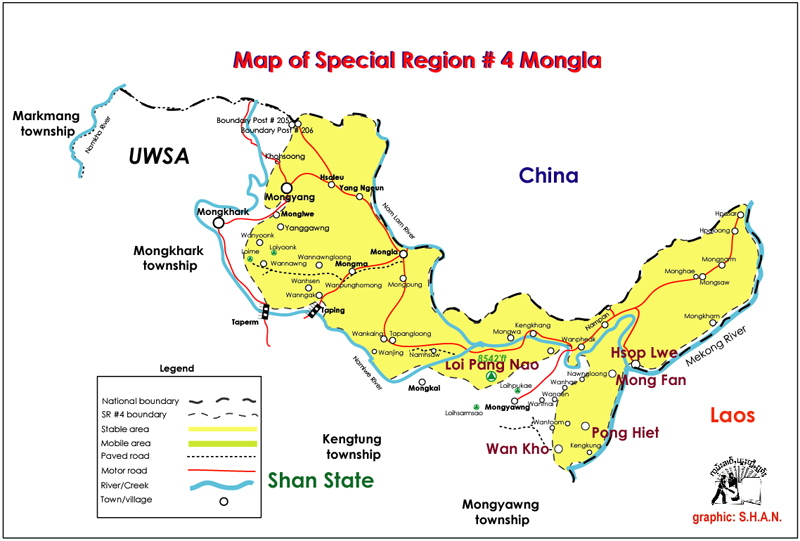Aung Kyaw Zaw, son of the legendary Thirty Comrades’ still surviving member General Kyaw Zaw and himself a known authority on China, told SHAN yesterday the message that Gen Xu Caihou brought to Burma during his 4 day visit, 12-15 May, was a clear warning that China would not take kindly to a military conflict on the mutual border.

According to Xinhua, Xu, Vice Chairman of Central Military Commission, told Lower House Speaker Thura Shwe Mann that there was “a need to handle well the complicated and sensitive issues related to security and stability” “in order to better maintain peace and stability” of their respective countries.
“In any case, recent move against the Wa and Mongla forces in Mongyawng (opposite Mongla-controlled territory) by the Burma Army was no more than a bluff,” Aung Kyaw Zaw, a resident of Ruili, opposite Burma’s Muse, added. “It would need more than 7 battalions it has there (under the command of Mong Phyak-based Military Operations Command#18) to attack the joint Wa-Mongla forces in Loi Pang Nao and Hsop Lwe.”
On 27 April, Naypyitaw issued an ultimatum to both the Panghsang-based United Wa State Army (UWSA) and the Mongla-based National Democratic Alliance Army (NDAA) to withdraw their forces from Loi Pang Nao and Mong Fan (Wa-Mongla stronghold south of Hsop Lwe, the mouth of the river Lwe that drains into the Mekong) by the end of the month.
Both had refused to comply with saying without an acceptable political settlement, there would be no back-down on the military front.

So far it is still unclear whether the bilateral talks in Naypyitaw also included current tensions with the Kachin Independence Organization (KIO) and the Shan State Army (SSA) North, in whose operational areas the projected oil and pipelines have been planned to go through from the Arakan coast to China’s Yunnan.
The SSA North, a group that operates west of the Salween, and the Burma Army have been fighting since 13 March when Naypyitaw terminated the 21 year old ceasefire pact with a military offensive reportedly code-named “Operation Zwe Man Hein”.
But in August 2009, when Kokang, another Wa ally and a group whose territory adjoins China, was attacked, China warned Naypyitaw to “properly deal with its domestic issues to safeguard regional stability” and to ensure safety and rights of Chinese citizens in Burma, according to AP.


